
Chico Buarque
Brazil has a long tradition of coup d'états. These coups would have not been viable without the support of the big media, particularly TV Globo. Two Brazilian journalists in the UK reveal the manipulative tactics of these organisations.
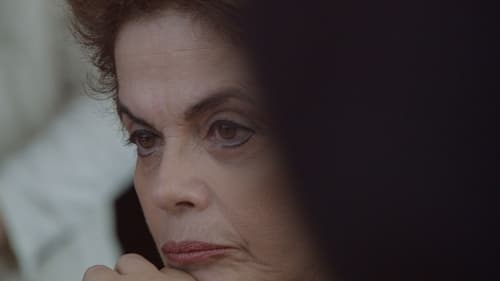
Self
The film narrates, from an intimate point of view, the daily life of President Dilma Rousseff in her official residence, the Palácio do Alvorada, while awaiting the verdict of the impeachment process. Portraying the hallways of the palace, designed by Oscar Niemeyer, we see the coming and going of political meetings, the daily routine of the kitchen, the exchange of guards, whispers and phone calls. We feel the growing tension of officials, advisers and former ministers.
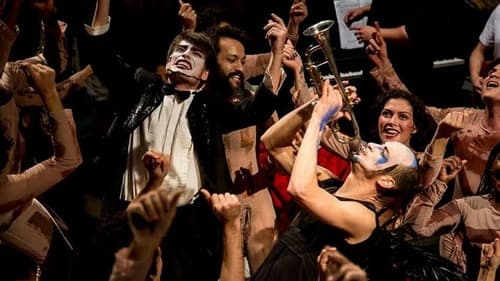
Self
In six decades, Teatro Oficina has done more than revolutionize theatrical language in the country: the aesthetic influence of José Celso Martinez Corrêa's company extends from Tropicalism to the renewal of Brazilian audiovisual languages from the 1960s onwards. The film revisits a story that it involves personalities such as Caetano Veloso, Glauber Rocha, Lina Bo Bardi, Chico Buarque and Zé do Caixão, brings together scenic art, ecology, architecture and sexuality, and mixes art and life in the search for a Brazilian based language.
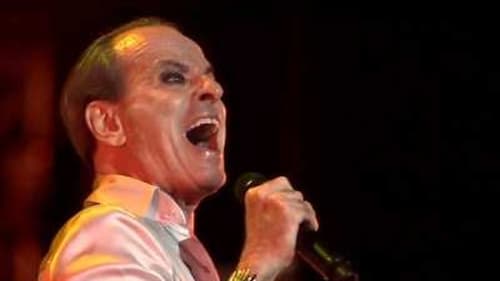
Self
The impact of Ney Matogrosso's performances on his audience and the reverberation of that impact on Brazilian culture, from the second half of the 20th century to the present. An audiovisual anthology, all composed of archival images. The best way to get to know Ney is to be with him on stage.

Self
"What would the world be like without Beethoven?" That’s the provocative question posed by this music documentary from Deutsche Welle. To answer it, the film explores how Ludwig van Beethoven's innovations continue to have an impact far beyond the boundaries of classical music, 250 years after his birth.

Self
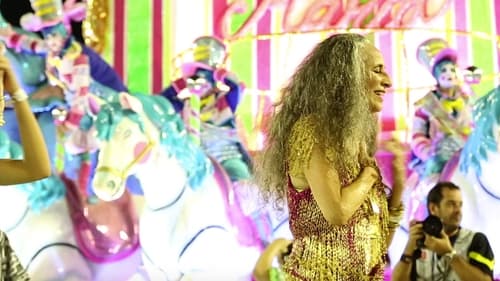
Self
A record on Brazilian samba school Estação Primeira de Mangueira's victory on the 2016 carnaval parade. Mangueira's parade that year was a homage to singer Maria Bethânia. The documentary also follows Bethânia on the celebrations of Our Lady of Purification, in Bahia, northeast of Brazil.

Musician

Music
The story of five generations of the Austrian-Brazilian Knieps family, from the inauguration of their family-owned Great Mystical Circus in the 1910s up to the early 21st century, following both the family and the circus from their prime through to their decadence.

Intérprete

Self
Between 2009 and 2012, filmmaker Cristiano Abud’s team followed the Brazilian samba musician Wilson das Neves. The result is this documentary, which recaptures the trajectory of Wilson, considered the greatest samba drummer of the 20th century.

Self (archive footage)
It tells the story of the musicians who revitalized Lapa, from the end of the 90s, in meetings on the small stage of "Bar Semente". The documentary is a historical record of a stronghold of cultural effervescence that remained in the affective memory of Rio de Janeiro.
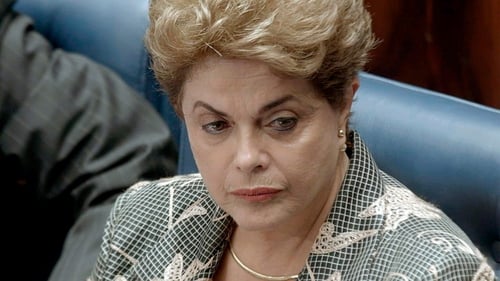
Self
The impeachment and removal from office of Brazilian President Dilma Rousseff in 2016 was triggered by a corruption scandal involving, among others, her then vice-president Michel Temer. Director Maria Augusta Ramos follows the trial against Rousseff from the point of view of her defence team. This is a courtroom drama that unfolds slowly: the appearances of the various parties gradually turn the proceedings into something akin to theatre. Inside the courtroom, grand emotions are played to full effect whilst, on the other side of the doors, lobbyists and supporters pace the corridors. Meanwhile, outside, in front of Brasília’s modernist government buildings, demonstrators are chanting like a Greek chorus. Only the main character, Rousseff herself, remains professional and aloof.

Self - Interviewed
Documentary on the life of uruguayan legendary musician Hugo Fattoruso.

Self

Self
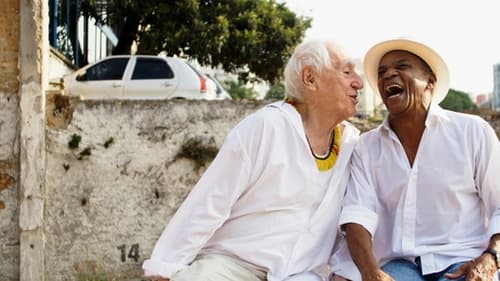
Self
This documentary investigates the aesthetic, political and existential trajectory of emblematic Black Brazilian actor Antônio Pitanga. He career spans over five decades, and he has worked with iconic Brazilian filmmakers Glauber Rocha, Cacá Diegues and Walter Lima Jr. He was a prominent figurehead and outspoken activist during the Brazilian dictatorship, a period of unrest in Brazilian cinema. Pitanga deep dives into the world of Antônio and the history of Brazil. The documentary was directed by his daughter Camila Pitanga, one of widely recognised faces in Brazilian television and cinema right now. The film is also a poem, and a tender ode to fatherhood.
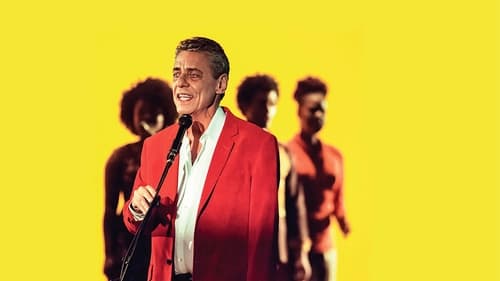
Self
Chico Buarque is a constant presence in Brazil's art scene and makes up its citizen's popular culture. This wealth in music, poems, theater and novels has been created over the last 50 years and in this film Chico Buarque converses about his memories, shows, daily life, work methods, creative process, in summary all his trajectory. The musician’s search for his German brother, whom he never got to meet, serves as one of the axis for the narrative.

Music

Self
A documentary about the production of Hugo Carvana's successful film "Vai Trabalhar, Vagabundo", from 1973.
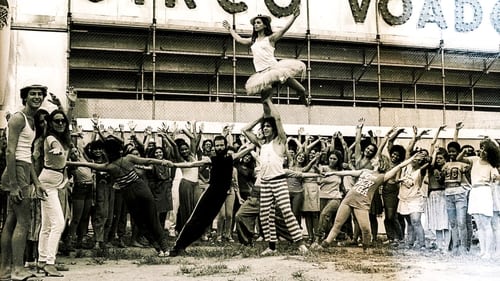
Self
This documentary highlights the evolution of Brazil's Circo Voador venue from homespun artists' performance space to national cultural institution.

Self

Music

Scenario Writer

Other
On a Saturday, unhappy with her marriage, Carol gets ready to leave, her husband usually goes to a soccer match and bring his friends back home for lunch. The dish of the day is feijoada.
This film is an adaptation of the short story "Feijoada Completa" by Luis Fernando Verissimo, in turn inspired by the homonymous Chico Buarque' song.

Orphaned by father and mother, Clara has always dreamed of building a singing career. At the age of 16, she moved to Belo Horizonte, where she won the ABC Golden Voice contest. In 1966, she recorded her first vinyl: A Adorable Voice by Clara Nunes. The approach to samba made her achieve the longed for success, in addition to international repercussion. Clara Nunes revolutionized the music industry, becoming the first woman to break the barriers imposed by the record label.
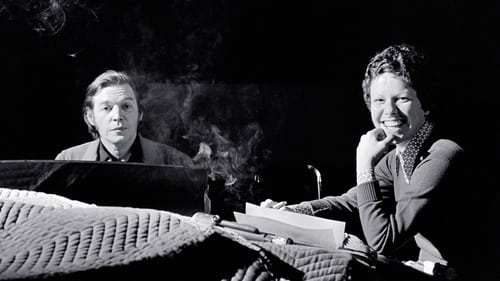
Self (archive footage)
Half a century ago, Brazilian composer and musician Antonio Carlos "Tom" Jobim (1927-1994) introduced bossa nova to a worldwide audience with "The Girl from Ipanema." This relaxed, cool, sensuous music blended jazz and samba. After recording an album of songs by his friend Jobim, Frank Sinatra is reported to have said, "I haven't sung so quietly since I had laryngitis." Naturally, "The Girl from Ipanema" and Frank Sinatra are featured in this musical collage of countless seamlessly edited excerpts of concert footage that cover decades of events all over the world: from Rio de Janeiro to Lisbon, Paris, Copenhagen, Jerusalem, Tokyo, Montreal, New York and back to Rio.

Self
In his film Rua Aperana 52 Júlio Bressane describes the invention of a landscape, the topology of a corner of Rio de Janeiro. The film consists of a series of photographs taken between 1909 and 1955 by, among others, Bressane's parents at and around the address used as a title. These are interlarded with scenes from films made between 1957 and 2005, bringing the total fictional time the film covers to almost a century; one hundred years in which the winding road featured in almost every shot structures the new landscape behind the Aperana, which means 'wrong road'. Rua Aperana 52 is autobiographical, as it is a landscape from Bressane's youth, but it is also not so; it is more a multi-subjective mythology of a place seen through all those films and photographs. Bressane refers to his editing as an intuitive form of thinking aimed at evoking moods which make the viewer the new witness of the fictional landscape. A fiction about a fiction,

Self
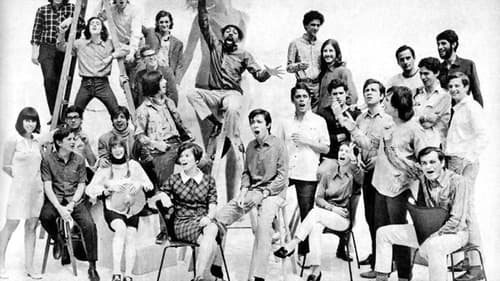
Self
If you thought TV shows in which audiences and juries judge musical acts were a relatively new phenomenon, you'd better think again. In the 1970s, such "festivals" were incredibly popular in Brazil. They were recorded before a live studio audience, and usually featured a number of elimination rounds. They also formed the springboard for the career of many a big-name star, such as Chico Buarque, Caetano Veloso, Roberto Carlos and Gilberto Gil. Appearing on such a program was no cakewalk, however: audiences could be as wild in their condemnation as in their appreciation of an artist. Extensive archive footage (including performances and behind-the-scenes interviews) from a turbulent final of the Festival of Brazilian Popular Music one evening in 1967 paints a fascinating picture, not only of the transformation of Brazilian music into real "festival" music, but also of a society starting to buck against the yoke of military rule.

Self
The movie "Augusto Boal and the Theatre of the Oppressed" shows the path of the dramaturgo Augusto Boal at the creation of a theatre that has as objective to transform those who participate it in a spiral of changes, in an oppressing society. Along the trajectory we see Boal's intellectual search and the transformations of the Brazilian society, from the 60s to nowadays. The spectator will meet the numerous uses of the Theatre of the Oppressed around the world (there are groups in 77 countries) and how they manifest in different situations, characterized by the relation between the oppressor and the oppressed, from the biggest to the smallest powers.

Self

Self

Self (archive footage)
Loki brings the trajectory of Arnaldo Baptista from childhood, passing through the most successful phase as leader of the Mutantes, marriage to singer Rita Lee and then separation. He also goes through the depression that devastated his life after the group ended and that led him to attempt suicide, his solo career, rapprochement with his brother and member of the Mutantes, Sérgio Dias, culminating in the band's return in 2006.

Novel
José Costa is a Brazilian ghost writer. Returning from a ghost writers convention his airplane is rerouted to Budapest. His life is also rerouted when he meets Krista and with her help, learns "the only language in the world which, according to the tongue-wagers, the devil respects.
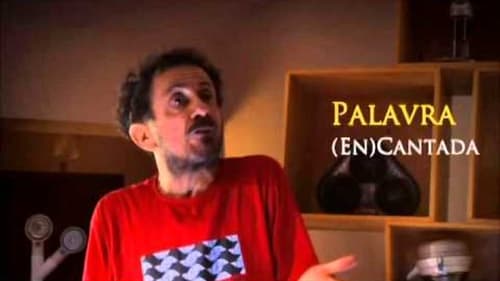
Self
Palavra (En)Cantada makes a journey in the history of the Brazilian songbook with a look at the relationship between poetry and music, sewing testimonials of great names of our culture, musical performances and amazing research of images.

Self
A host of personalities reminisce about the life and work of songwriter, lawyer, and congressman Humberto Teixeira — aka "Baião Doctor" — the author of such classic Brazilian popular songs as "Asa Branca". A musical film about the baião, a movement in Brazilian music in the 1940s and 1950s that was later snowed under by samba and bossa nova.
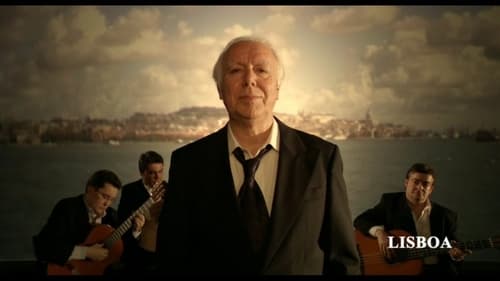
Self
A drama steeped in Portugal's Fado music culture.

Self
A documentary made to coincide with Niemeyer's 100th birthday. The renowned architect talks about his long life, his inspirations, and his aspirations towards a just Brazil, and the ways he tried to help that along in his spectacular and beautiful buildings.

Self

Self
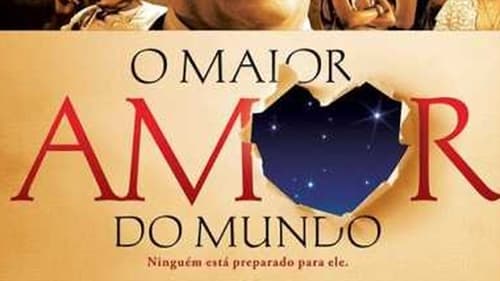
Original Music Composer
Antônio is an astrophysicist who has just found out he has an inoperable brain tumor. After decades living in the United States, he returns to Brazil and tries to learn more about his biological mother. His quest sends him off into the slums of Rio de Janeiro.

Self
Documentary about the 68-generation, told through the story of the newspaper “O Sol”, one of the first vehicles of the alternative Brazilian press, produced daily for six months, in the 1960s. The newspaper spoke of culture, politics and education through satires and prominent figures in the cultural scene of the time passed through him. Archive scenes and music from the period seek to reconstitute the spirit of the 68-generation. The film has the participation of personalities such as Ziraldo, Zuenir Ventura, Arnaldo Jabor, Chico Buarque, Caetano Veloso, Carlos Heitor Cony, Fernando Gabeira, Betty Faria, Hugo Carvana, among others.

Self
44 clips about themes, places and people that have appeared on the series

Self - Singer 'Medo de Amar'
To celebrate the life and the work of a multifaceted creator – playwright, poet, partner of the most important names of Brazilian pop music and, above all, an enlightened character of the Brazilian cultural history - director Miguel Faria Jr. gathered an incomparable cast of partners, singers, friends and rare images from the archives recalling Vinícius’ genial simplicity, with the spontaneity, the humor, and the freedom of a person chatting over a bar table, exactly how the eternal Vinícius would enjoy.

Self
Brazilian singer Maria Bethania has a 40-year singing career. A documentary shows her concerts and famous family.

Self

Self (archive footage)
Latest images of the artist still alive, an unprecedented composition, testimonies of friends, family and icons of Brazilian culture.

Self (archive footage)
The biggest Brazilian historical festival of all time. The great cast of the 1973 Phonogram (now Universal Music) meets in three nights to protest against the curtailment of freedom of expression in those dark years of the dictatorship. With the images rescued in 2005, revealing exciting moments, containing the incredible presentations, it brings a team of all greatness and the opportunity to understand the path that Brazilian music has taken to the present day.

Self

Self

Self

Self

Self

Self

Self

Self

Self

Self
Este é o nono DVD da série retrospectiva da obra de Chico Buarque e trata da rica relação entre múcica e literatura nas canções e livros do autor. Gravado em Lisboa, Paris e Budapeste, mostra o artista explicando as diferenças entre duas linguagens e como elas se influenciam mutuamente em sua obra. Faixas 1 Fado Tropical 2 Uma Palavra 3 Mar E Lua 4 Passaredo - Part Francis Hime 5 Mano a Mano - Part João Bosco 6 Joao E Maria 7 Ela Desatinou - Part Daniela Mercury e Tom Jobim 8 Quem Te Viu, Quem Te Ve 9 Fantasia 10 Pivete 11 Carioca 12 Sonhos Sonhos Sao 13 Morro Dois Irmaos 14 A Danca Dos Banqueiros

Self
The DVD MY DEAR FRIEND opens the retrospective series of work of Chico Buarque, highlighting some of his passions: the city of Rio de Janeiro and its partners and friends. "I kept an almost alien look on Rio I still have a relationship with the city of wonder. "
Friends, partners and songs will be happening in the first episode of the series, in a relaxed and intimate way.

Music
A 50 year-old woman who analyses her past. She pictures herself when she was 20 years old and she re-creates the story of her life through a game of innumerous possibilities. What if she wouldn't have gone to that ball? What if... instead of meeting the man of her life, with whom she married and had kids, she would have called a girlfriend and they went to the theater? What would be her destiny? What would have happened? In the plot the present talks to the past. A young woman projects her future in a fascinating game between memories and desires.

Novel
Benjamim Zambraia is a lonely man, a famous model with a tragic past. Some time in the past, he showed some officers the exact location where the woman he loved was hiding with her guerilla lover. As a result, the two were killed. One day, he casually meets a woman who looks very much like his former love, and this fact changes his life. Could she be the daughter of his great love? Or her reincarnation?

Self
Documentary in two parts about Brazilian writer, journalist and sociologist Sérgio Buarque de Holanda. The first part describes how the author used to pass his days with family and friends, while the second offers a historical panorama of the times, including his reaction to Nazism and the years of Vargas’ dictatorship, and the arrival of the modernist movement in Brazil.

Self

O DVD intitulado Estampado da cantora e compositora Ana Carolina traz grandes sucessos e músicas inéditas na voz desse ícone da música brasileira. Você pode conferir faixas novas como "Escurinho", "Gente Humilde" e "Oração de São Francisco de Assis", além da interpretação da canção "Corsário" acompanhada pelo violão de João Bosco. O disco ainda conta com participações especiais de Chico Buarque, Chico César e Maria Bethânia. Imperdível!

Self
Evandro Teixeira is one of the leading names in world photojournalism, with a career spanning more than 37 years in the Brazilian press. Baiano from Jequié, chose Rio de Janeiro to settle down and it was in Jornal do Brasil that he spent most of his career. In addition to an untiring photographic reporter, he also traveled to Brazil to search for images of Brazilians and recorded important events in the history of Brazil and the world, in coverage of national and international events.

Self
This is a journey of friendship, an Argentinian is going to rediscover his continent while searching for his friend from Bahia. And while the work, the records and the career of this great lady of Brazilian music are well known, the starting point, the training, the first years remained till now in a vaguely legendary and imprecise blur. Thanks to many investigations that concern as many places as times, thanks to journeys back in time through the towns and regions, the film seeks the origins of Maria Bethânia’s voice and style. Helped and led by Bethânia herself, with the assistance of Caetano Veloso and Chico Buarque, the two princes of Brazilian music, along with the complicity of the great Gilberto Gil, the author is allowed to go to the first context : the North-East. In the family home in Santo Amaro, the film finally touches the childhood of Maria Bethânia – and her brother Caetano, and this mysterious point – from which the music radiates.

Amante
Ana lives in a little village by the sea, with her husband and daughter. He decides to leave for a few days. That seems to be the ideal solution, because Ana needs to finish a work she has been doing for a long time. But her concentration seems threatened when she starts doing her daily walks by the village and the beach: she saves a stranger from death in the sea, meets young Alexandre and Emilia, and her friend Vera turns up in her house. And then, everything changes…

Self

Original Music Composer
Documentary depicting what happened to the characters in the film Terra para Rose, made by the same director. Shows the life of some 1500 families of landless rural laborers who, for the first time in 1985, occupied an unproductive large landholding, the Annoni plantation in Rio Grande do Sul. After camping out for years in tents, facing down the police and negotiating with the government, the former landless laborers have managed to turn their dream into reality, and are now successful small farmers.

Self
The Portuguese Revolution (1974-75) seen through the eyes of some of the most important photographers and filmmakers that witnessed the event. Their dreams and expectations and what came out of the revolution. With outstanding historical footage.

Novel
After a restless night he is awoken by his doorbell insistently ringing. Through the peephole, he sees a stranger. He doesn't know why that man is there but is immediately certain of one thing: he represents a terrible threat. He quickly dresses and manages to sneak away, no doubt in his mind that the stranger is pursuing him, and that the nightmare has only just begun.

Self

Music
A young girl named Marcela lives with her dad, Jose, a lighthouse keeper, and old Daniel on an island. The only contact the girl has with the world outside her home is by a boat with four sailors that pays a visit to the island in order to take them supplies. Daniel, who not only protects her from her dad's strictness but also teaches her how to be literate, is her source of tenderness. Her dad thinks she should be away from the world - though she wishes she could spend a few days in town. Then one day, as she has her first period and becomes a woman, she starts feeling sexuality through the blowing wind, which she talks to.
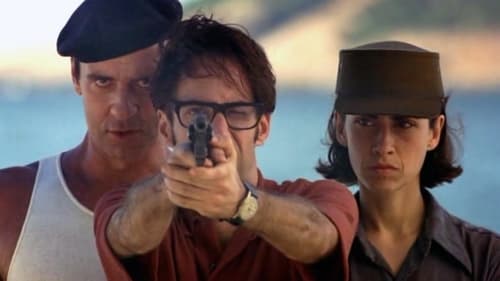
Music
Fernando, a journalist, and his friend César join terrorist group MR8 in order to fight Brazilian dictatorial regime during the late sixties. Cesare, however, is wounded and captured during a bank hold up. Fernando then decides to kidnap the American ambassador in Brazil and ask for the release of fifteen political prisoners in exchange for his life.

Silva 1
A detective is hired by a mysterious woman to find her missing husband, a master of disguises, and important industry executive.

Self

Noel Rosa
The history of Brazilian popular music in the 20th Century, focusing specially on the life and works of intriguing singer Mário Reis, a loner who, with his special way of singing - whispering and softly saying the words - in a time when singers with potent voices ruled, was in a way a forerunner of Bossa Nova style.

Self
When Brazilian multi-sport club completed its 100th anniversary, this documentary narrated its story by interviewing some of its most important sportsmen ever, in football, basketball, rowing.
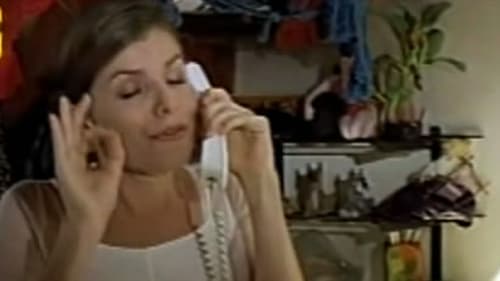
Music
Four love stories which portray a wide gamut of emotions and desires against the backdrop of Rio de Janeiro. "Elephant's Stomp" : the story of a highway patrol officer who is infatuated with a mulatto dancer at a local nightclub. "Drao" : a publicity man and a boutique owner who face a crises in their marriage. "You Are Beautiful" : two homeless teenagers seek love amidst their personal misery. "Samba of the Great Passion" : a book maker who is charmed and captivated by the voice of a female singer coming from a building across the street. Characters in search of love in order to escape from the boredom, loneliness and helplessness of their lives.

Self
Beyond Citizen Kane (1993) is a British documentary film directed by Simon Hartog, produced by John Ellis, and broadcast on Channel 4. It details the dominant position of the Rede Globo media group in the Brazilian society, discussing the group's influence, power, and political connections.[2] Globo's president and founder Roberto Marinho came in for particular criticism, being compared with fictional newspaper tycoon Charles Foster Kane, created by Orson Welles for the 1941 film Citizen Kane. According to the documentary, Marinho's media group engages in the same Kane wholesale manipulation of news to influence the public opinion.

Music
Exiled in Acapulco, the bon vivant Dino cheats a rich widow into financing his coming back to Brazil. To avoid getting caught, he hides in a coffin. His fake burial is celebrated in high style and it doesn't take long before he starts getting himself into weird situations.

Julinho da Adelaide
Exiled in Acapulco, the bon vivant Dino cheats a rich widow into financing his coming back to Brazil. To avoid getting caught, he hides in a coffin. His fake burial is celebrated in high style and it doesn't take long before he starts getting himself into weird situations.

Self
A look into the 25 years of career of famous musician Chico Buarque and his influence in Brazilian culture.

Self
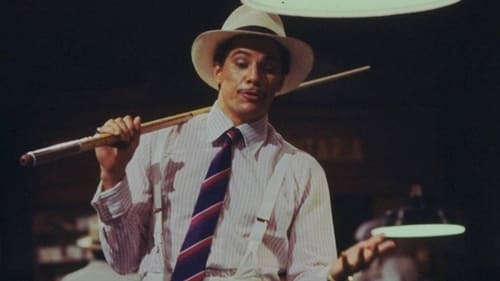
Music
In Rio de Janeiro's bohemian district called Lapa, during the '40s, a stylish and popular scoundrel exploits a cabaret singer, and earns his living by means of petty swindles. But then he meets Ludmila, the cabaret owner's daughter, who wants to get rich smuggling goods in times of war.

Writer
In Rio de Janeiro's bohemian district called Lapa, during the '40s, a stylish and popular scoundrel exploits a cabaret singer, and earns his living by means of petty swindles. But then he meets Ludmila, the cabaret owner's daughter, who wants to get rich smuggling goods in times of war.

Self
Nelson Cavaquinho as seen by Ruy Solberg.

Music
Poor people who live in the slums in Rio de Janeiro decide to occupy an empty apartment building in the rich part of the city. Meanwhile, a rich girl falls in love with a poor composer. Based on the musical play "Pobre Menina Rica", by Vinícius de Moraes and Carlos Lyra.

Writer
Poor people who live in the slums in Rio de Janeiro decide to occupy an empty apartment building in the rich part of the city. Meanwhile, a rich girl falls in love with a poor composer. Based on the musical play "Pobre Menina Rica", by Vinícius de Moraes and Carlos Lyra.

Novel
Based on text from Chico Buarque de Holanda's Fazenda Modelo, the film is a parable about a construction worker and the foreman of the plant.

Music
Glorinha, a middle-class 15 year old girl, always thought her mother Judite had killed herself, and that her father Gilberto has gone crazy as result. Her friend Nair takes her to a high-class bordello, where she wants to work. When uncle Raul, who raised her, discovers her prostitution, he decides to finally tell her all the truth about her parents' story.

Theme Song Performance
Documentary about the strikes that took place in São Bernardo do Campo, in the State of São Paulo, Brazil, circa 1979/1980. That moment was of utmost importance, since it revealed a Union leader, Luís Inácio "Lula" da Silva, who would later become President of Brazil. It was also the moment when PT, the Workers' Party, became a relevant political force in Brazil.

Music
Humble officials, friends Didi, Dedé, Mussum and Zacarias become the great attraction of the circus Bartolo, thanks to its incredible ability to make the public laugh. But success has a price: the opposition of the magician Assis Satan and the greed of the Baron, the owner of the circus. Together, the four friends will have to fight them.

Writer
Humble officials, friends Didi, Dedé, Mussum and Zacarias become the great attraction of the circus Bartolo, thanks to its incredible ability to make the public laugh. But success has a price: the opposition of the magician Assis Satan and the greed of the Baron, the owner of the circus. Together, the four friends will have to fight them.

Screenplay
The life and work of Brazilian singer-songwriter, guitarist, composer, playwright, writer and poet Chico Buarque de Hollanda.

Self
The life and work of Brazilian singer-songwriter, guitarist, composer, playwright, writer and poet Chico Buarque de Hollanda.

Self
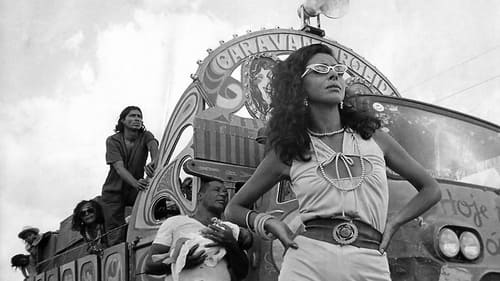
Music
The Caravana Rolidei rolls into town with the Gypsy Lord at the mike: he does magic tricks, the erotic Salomé dances, and the mute Swallow performs feats of strength. A young accordion player is completely enamored of Salomé, and he begs to come along. The Gypsy Lord shrugs, and the accordionist and his pregnant wife, Dasdô, join the troupe.

Original Music Composer
In 1970, the Esquadrão da Morte (Death Squad)' crimes for the refinement of violence provoked a wave of reactions throughout the country. The photos of the victims, adorned by the skull, symbol of the group, caused an uncomfortable indignation. This is the story of Mateus Romeiro, the most famous of the policemen, who was part of the Homens de Aço (Steelmen) group, one of the factions in which the squadron was divided.

Original Music Composer
When Daniela, a famous actress, decides to return to her hometown to reconnect with a simpler lifestyle, local politicians decide to exploit her influence in order to get ambiguous deeds done.

Original Music Composer
In a small city of Brazil, Flor, a cooking teacher, marries Vadinho, a very handsome and erotic man. Once married she finds he is a good-for-nothing who takes all her money to gamble. After his death, Flor misses the goods of the marriage so she marries again with a very correct gentleman - the owner of a drugstore. Now she's very happy with her man, but misses the erotic moments with her previous husband. One day, Vadinho comes back as a ghost to quench her desires.

Music

Original Music Composer
Joana is a sophisticated, beautiful woman, so she has a choice of lovers, and destinies. She will let down Pierre, the French consul at São Paulo, and with him the frivolity of tea-parties and comfort. Her wild inner-soul will develop into the wild forest surroundings of a landlord's farmhouse. To the extent she will defend her land like a 19th century owner - of lands and men alike.

Self
Chico Buarque and MPB-4 performing live at TV Cultura.

Songs
Having come out recently from jail, a tramp, willing to make quick money, decides to organize a pool match between two famous retired players.
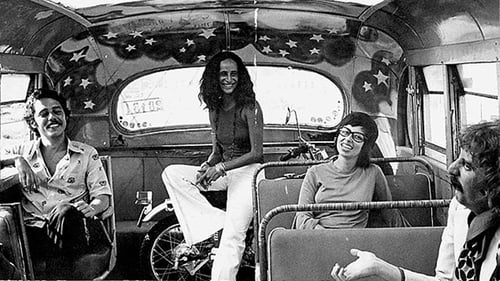
Music
Music manager has to get three of his artists together for a special show, but soon finds out it isn't an easy task.

Story
Music manager has to get three of his artists together for a special show, but soon finds out it isn't an easy task.

Paulo
Music manager has to get three of his artists together for a special show, but soon finds out it isn't an easy task.

Original Music Composer

Self

Self
Chronicles the life of a 17 year-old girl living in the upper-class Rio de Janeiro neighbourhood of Ipanema. Márcia lives a life of parties and spend her days among bohemians, musicians and intellectuals. While seeming happy in the outside, she's extremely anguished inside. Based on the famous song by Antonio Carlos Jobim and Vinicius de Moraes.

Music







































